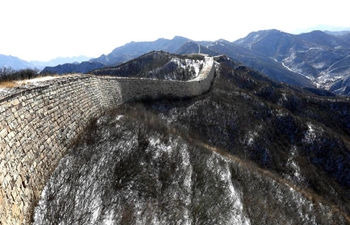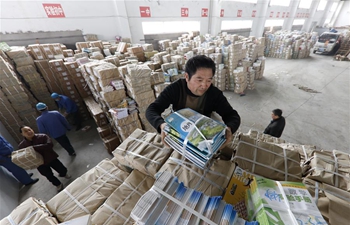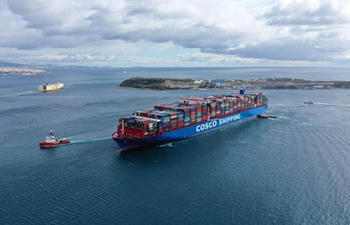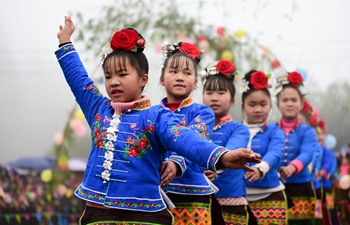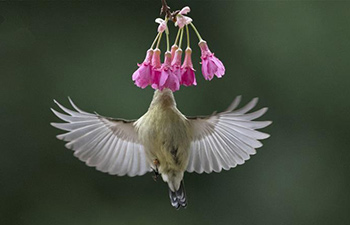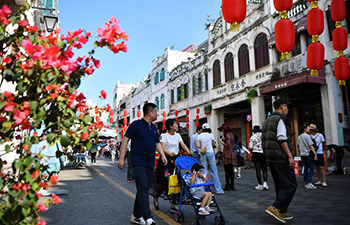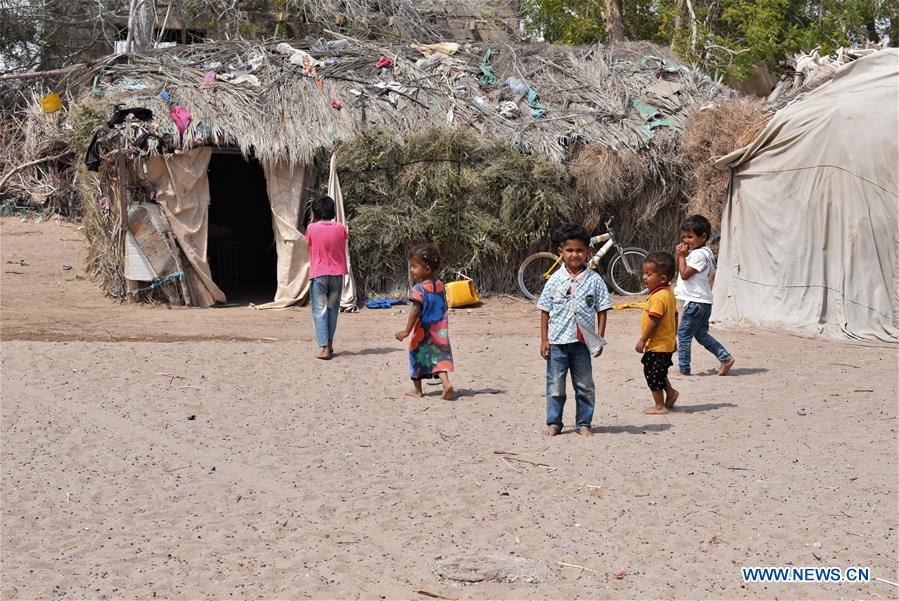
Displaced children walk past their hut on the outskirts of Aden, Yemen, on Feb. 16, 2019. Hundreds of families were displaced from different war-torn Yemeni areas because of the ongoing fighting between the warring factions. (Xinhua/Murad Abdo)
by Murad Abdo
ADEN, Yemen, Feb. 16 (Xinhua) -- Hundreds of families were displaced from different war-torn Yemeni areas because of the ongoing fighting between the warring factions.
They are currently facing bad humanitarian conditions in other safe provinces in the impoverished Arab country.
Government officials told Xinhua that more than 260 internally displaced families arrived recently in the southern provinces such as Lahj and Aden that are completely controlled by the Saudi-backed Yemeni government.
They said that most of the newly displaced families evacuated their homes in the strategic Red Sea port city of Hodeidah because of the exchange of random artillery shelling between the government forces and the Iranian-backed Houthi rebels.
On the outskirts of Aden near Lahj province, the local Yemeni government authorities, in cooperation with international humanitarian organizations, established only one displacement camp to receive families fleeing the conflict-battered areas.
The officials responsible for the displacement camp on Aden's outskirts said that it was fully crowded and couldn't cope with the inflow of the newly displaced families.
They added that a number of displaced families are now sheltering in the open in the government-controlled provinces of Lahj and Aden, amid acute shortages of food, clean drinking water, and medicines.
Abdullah Ahmed, an internally displaced citizen, told Xinhua that many families are still fleeing their homes in Hodeidah despite the ongoing cease-fire that began last December but failed to completely halt the fighting in the city.
"People in Hodeidah are still suffering from sporadic fighting and many families preferred to choose to flee into other safer places to protect themselves and stay alive," Ahmed said.
He added that "lack of basic needs like water and food was a nightmare and shocked many families who did not expect to face such new difficulties in displacement camps."
However, Ali Murshed Khaled, a local tribal figure, said that some charity associations are providing food aid to the new arrivals despite the increasing number of internally displaced people.
"Some families lost their money in transportation while moving from one place to another until they reached the outskirts of Aden and they received food aids from local charity organizations as initial support," Khaled said.
On Thursday, the United Nations and its humanitarian partners released an assessment for Yemen, reporting that nearly 24 million people need "some form of humanitarian or protection assistance."
UN spokesman Stephane Dujarric said that "the crisis remains the worst in the world with an estimated 80 percent of the population ... in need of some form of humanitarian or protection assistance, including 14.3 million people who are in acute need."
"The number of people in acute need is 27 percent higher than that of last year," he told reporters at a regular briefing, announcing a pledging conference sponsored by Sweden and Switzerland set for Feb. 26.
"More than 20 million people across the country are food insecure, half of them with extreme levels of hunger," Dujarric said. "For the first time, we have confirmed pockets of catastrophic hunger, with 238,000 people affected in some locations."
The UN and its humanitarian partners have been warning for several weeks that the Arab country is on the brink of famine, a result of a nearly four-year-old civil war.
Hodeidah is a key port city and home to the Red Sea Mills, housing enough grain to feed millions of people for a month, but presently inaccessible to aid workers, the UN said.
Yemen has been mired in the civil war since late 2014 when the Houthi rebels overtook the capital Sanaa and toppled the government of President Abd-Rabbuh Mansour Hadi. A Saudi-led coalition has been fighting the Houthis since 2015.
The war has killed more than 10,000 people and created a serious humanitarian crisis.





